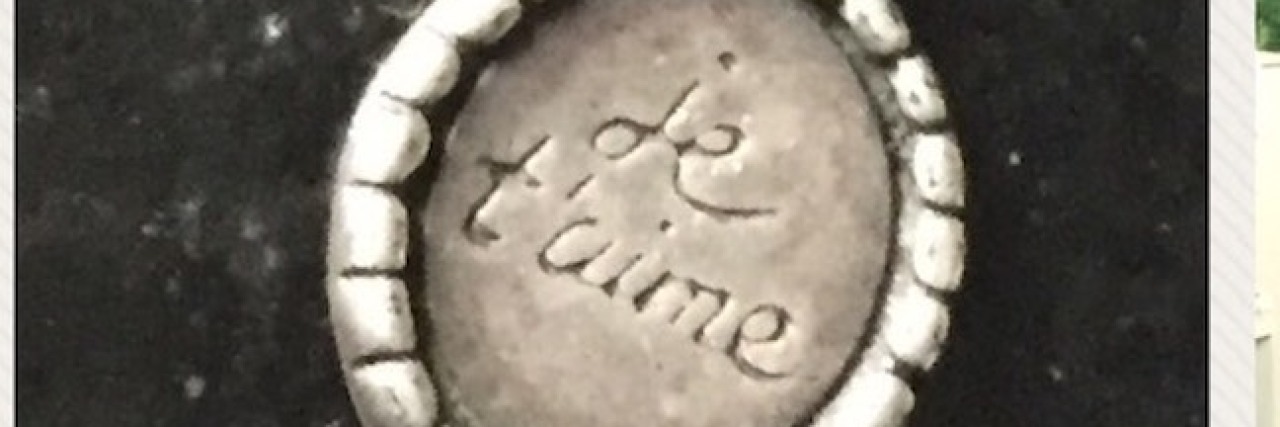When My Son on the Autism Spectrum Felt So Alone He Attempted Suicide
Editor's Note
This story has been published with permission from the author’s son.
“Je t’aime.”
I’ve had this simple silver necklace for years. I can’t recall where it came from. I’m not sure if it was a gift or thrift, and it certainly doesn’t look expensive. I’ve held onto it though, as I tend to hold onto things especially if they hold sentimental value — which is my favored currency. When my son, Ethan, was young, I wore it quite often. At the time, I didn’t grasp the repetition of our conversation regarding it and the fact that it repeated nearly every time I wore it. I just thought he was being silly.
“What does it say mama?” His chubby thumb pinching the necklace as he inquired. His white blonde hair brushing my face as he looked closer. Inspecting the letters with interest.
“It says ‘Je t’aime’” I would reply.
“My thumb?” He would ask, staring quizzically at his digit, not understanding the language, only grasping at any familiar sounding pronunciation.
“It means, ‘I love you.’” Then I would laugh and attempt to tickle him as he squirmed away and we would continue on until the next time he asked.
It would be more than a decade before I fully understood how much he couldn’t understand what those words meant to me. Not just the translation, but the energy and context those words are meant to convey. He “feels” love not in a lesser way, but in a way different from mine.
Of course even then I knew he was different, special. His mind working in fantastically advanced ways, his heart shielded even from me. He could sit quietly playing for what seemed like hours as an infant, fully immersed in his toys. His words and insights were always far beyond his years. He blew my mind constantly with his simple succinct wisdom that often was so obvious I was stunned I hadn’t discovered it first.
As he grew, the chasm between our languages grew. His world existed inside his computer, online and in his mind. I would try to pry him out with bribes and promises, with meditation and breathing techniques, and he would retreat even farther.
It was not until after his suicide attempt did we learn why he felt so alone. Twenty plus years ago, Asperger’s and autism spectrum disorders were not discussed, at least no like they are today. Information and education on these subjects was not common place, and certainly not for a teen mother with limited resources. After his attempt, he told me the first time he thought of suicide he was eight years old. Asperger’s had made him feel alien and utterly alone, his family spoke a language of feelings — different from how he experiences emotions — which was as foreign to him as the French on my necklace.
We have come a long way from those toddler years, from his painful childhood, from the attempt and from the subsequent diagnosis that changed it all. While he still feels alien, he now knows he has a reason for it. While he still struggles to understand emotions in others, he better understands why they overcome the rest of us. He has struggled, yet he remains strong. His path remains fraught with difficulties but he trudges on. His mind, a battlefield constantly engaged. His body, a war zone of scars and collateral damages from self-inflicted pain for a neurological difference that made him feel something was “wrong.” As his mom, I wish I could scoop him up into my arms and whisk him back to that simpler time. Transporting us back to fingers that are fully functioning and questions we were too naive to even think to ask, yet looking back I see all the symptoms.
Today I’m wearing this necklace as a reminder. This journey, as long as it has been, is far from over. His life holds much more story to be told, and together we will continue to face what comes.
Today I’m wearing this necklace with hope. There is a lot to look forward to; a lot that is unknown. There is one thing I do know without one hint of doubt, 20 years from now I will still tell him I love him, right down to his thumbs.
A version of this post first appeared on Sparkling Potential.

